In the community where I grew up, there was a hierarchy of people who were "gut oh tzene" (well-regarded) and those who were not and everyone in between. It was nearly impossible to move up in the hierarchy, but that did not keep people from trying. In their attempts at having themselves look better, people looked down at those of us lowest in the community. At some point I realized that there was nothing I could do to have people think better of me, because it had to do with my father not being able to function as Amish fathers "should." Because they didn't recognize mitigating factors, such as mental illness for what it was and were not able to deal with it, they seemed to think they could shame my father out of being the way he was. This was the Amish way. It's not that they excluded my father from the community gatherings, but they had a way of including him and excluding him at the same time. This system of approval and disapproval works to keep most people in line. But not for everyone.
Now that I've been out of the Amish for more than thirty years and I'm visiting different Amish communities and listening to various perspectives, I realize that this same hierarchy exists in and among the diverse Amish communities. For example, when David and I were in Grabill, Indiana, we had lunch at an Amish home, where they had opened part of their home as a restaurant. I seemed to remember that the Amish in Grabill are the Swiss Amish, but I also knew that Berne, Indiana was Swiss. So, I asked the Amish woman in charge how far away Berne was, and she said it was forty miles. I asked if the Amish in Berne were different than the Amish in Grabill. She said, "Oh yes, they are very different. They are much more — well, primitive."
I asked for clarification on that, and said that they are much more conservative — their farms were not well kept and they didn't believe in having anything hanging on their walls. She said that if they came and saw that she was running a restaurant, they would think she was very liberal. During the conversation, she mentioned that the Berne community was Swiss. I asked if the Grabill Amish were Swiss, and she said they weren't, but later she mentioned her mother was Swiss.
David and I were now curious. We drove around both communities before going back to Goshen for the night. We made observations: both communities had well-kept farms; both drove open-topped buggies; one community seems to allow bicycles, the other scooters; the dress varied some in each community. Can you tell which of these pictures were taken in Grabill and which were taken in Berne?
Or which of these two?
Notice this horse's feet are not touching the ground: I couldn't have caught him airborne if I'd tried, but here it is.
And one more chance:
Perhaps a person can tell the difference between one community and the other, especially with a closer look than driving around one afternoon and taking pictures. But that is actually not what I want to get at. Rather, what I wonder is why do the Amish people have such a need to put others down in an attempt to validate their own position, whether that is from one family to another within a community, or from one community to another? Now, as we "study" the Amish, we even have names for the Swartzentrubers and other Amish who don't measure up — the term is "low" Amish.
I did not know until long after I'd left my home community, that the Geauga County community where I grew up, was and is looked down upon. When I was reading
Ira Wagler's take on the Amish haircut attacks when I was reminded of this again. I quote:
Bishop Sam emerged from the strict plain Amish settlement in Geauga County, up near Cleveland. The Geauga Amish have always had an unsavory reputation. Just a notch above the Swartzentrubers. “Low” Amish. Uncouth. Rough. Hard core, far more so than the mad bishop who tormented me all those years ago. Their laughter is hard and mirthless. Many drink. Or smoke. Or both. And their youth practice bed courtship. All the bad stuff my father raged against in his writings, all his life. That’s Geauga.
I venture to guess that many Amish communities view the Geauga Amish this way. I find this is a huge generalization. Some individuals who came out of other Amish communities would like to have me join in on this way of thinking, especially people who grew up in Holmes County, Ohio. But no one can tell me that the problems we had in Geauga don't exist in these "high" communities, so the question is this: are these problems as prevalent in other communities as in Geauga? I'd have to be a fly on the wall inside many Amish homes to know the answer to this question and none of us have a way of doing that. But this I believe: by pasting these issues on "others" these Amish groups avoid confronting their own problems.

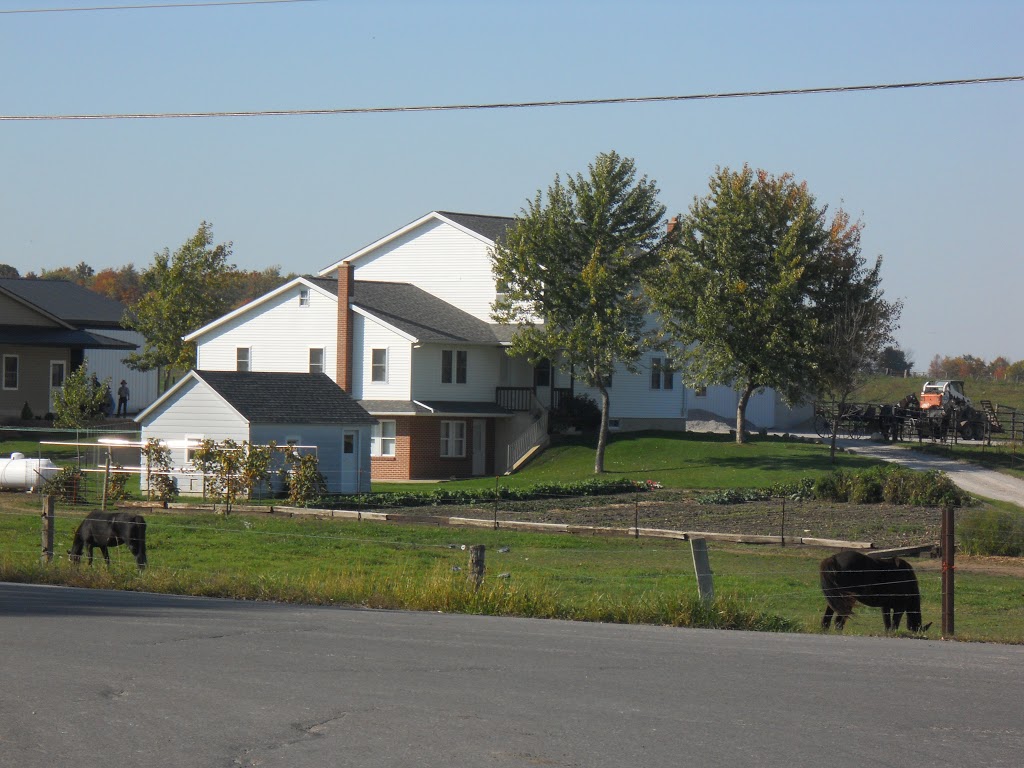
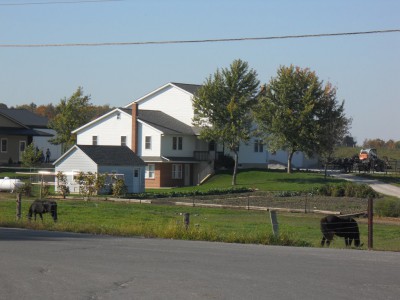
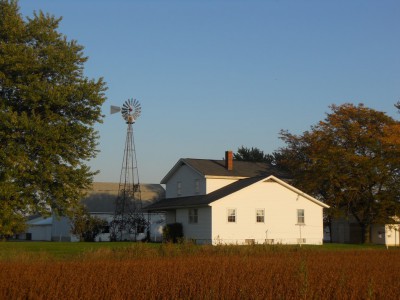
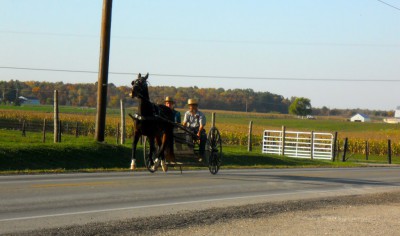
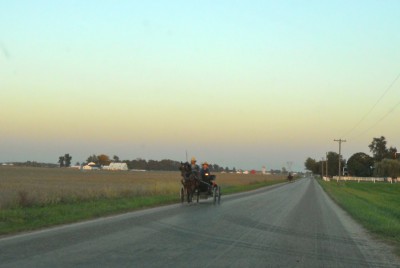
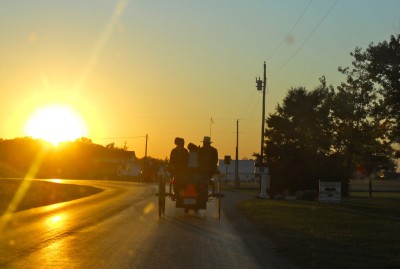
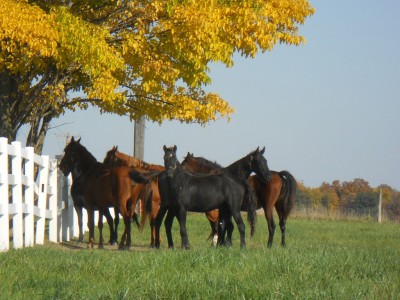

Saloma,
I’m from Indiana and can’t tell the difference in any of your Indiana photos… I’m more familiar with Shipshewana area only because I’m in that area more than Berne; the wedding I recently attended was in Topeka (just to the south and east of Shipshe).
Just for the shear fun of it:
The house photos: 1) Berne 2) Shipshewana. photo 3) Shipshe 4) Berne. 5) Shipshe 6) Berne.
How’d I do? lol
Shortly before my Dad died three years ago he told me that he was told after he was a grown man that he will never amount to anything. Dad lived up to that most of his life, although I was blissfully unaware of it until later in life. In the meantime we the looked down family, looked down on other families. It is just a way of Amish life.
What you describe would probably sound familiar the world over. In Europe, the English look down on the French. The French look down on the English. The Germans look down on everyone else, and everyone looks down on the Italians :)
This is nothing more than human nature, an ingrained need to band together which means identifying a distinct “us” and “them”, and (of course) inventing ways in which “they” are inferior to “us”. What you describe sounds like this very human feature becoming unusually fine-grained and institutionalized.
Sprouting Acorn, these photos are from Grabill and Berne — no photos from Shipshewana. Do you want to try again?
Hints: They definitely have windmills in Berne; horses in Grabill can fly; and the sun sets in Berne.
Katie, how sad that your father was told that. I find most people live up expectations — of others when we are not self-motivated, in which case we meet our own. I suppose this is one of those Amish ways I still have a hard time accepting.
Ian, thanks for your insightful comment. When you put it that way, I suppose it’s our way of belonging to a tribe or group, so we have to define the group by being different than those “others.” I think I’d add another observation — the smaller the group, the more personally we feel the rejection when we are excluded. It can be devastating in some cases. In other cases it is freeing because we can redefine who we are and choose the group we want to belong to, rather than the one we happened to be born into.
Thanks all, for your comments.
I never knew this about the Geauga settlement. I live right in Middlefield Village and many of my closest friends are Amish. I just find it surprising since so many go back and forth between Geauga and Holmes County. And it proves that no one is better than their neighbor if they pass judgment. But it does explain a comment I heard recently from the 15 yr old daughter of a friend. A tour bus of Holmes County Amish women was in my friends home craft and bakery and the daughter was more nervous about them than about the English.
Nope! I’ll pass. :) It just goes to show…. I don’t retain what I read or follow instructions very well. :)) Wonder where I got Shipshe? lol Interesting observations, none the less. Thanks for sharing. :)
Several years ago, I read a book written by an “English” man, who lived among the Swartzentrubers. It seemed to me that they were much stricter than most other communities. They had been involved in several late night auto accidents because they flat-out refused to put the orange triangle on their wagons, and several children had been injured by falling out of the wagon because there is no back door – not even a wooden slat or a cloth strap – to keep people and objects from bouncing out. The book also said this group did not allow padded chairs or sofas, and even the mattresses were very thin.
The man was very friendly with the people in the area, and admired them and their ways, very much. But there were times, such as the business with the back door on the buggy, that he seemed really frustrated.
Wish I could remember the name of the book!
Violet, when I was living in Geauga, there was not a whole lot of going back and forth with Holmes, and I was not aware that Holmes looked down on us when I was still there. Interesting that the Amish in Geauga, or at least your friend, are aware of that now.
Lady Anne, my guess is the book you are talking about was written by Joe Mackal: “Plain Secrets: An Outsider among the Amish.” I’ve not read the book because I cannot get past the idea that he must have spent time among the Amish long enough to get their “secrets” and then published a book about them. Seems like that is a one-time deal — I wonder if the Amish still trust him.
The last 2 blogs were very touching and thought provoking Saloma. Yup labeling and predestination is brutal (it is a denial of an individuals freewill) Whenever a group (or one individual) is labelled better than “Dat” or worst than “Dat”, it is a “most personal” and damaging psychological type of assault and freewill denial. (a 2 edged sword swung both ways) Throwing stones in glass houses or pulling the plank out of my own eye and using the same toothpick (or beam) as an offensive tool would be less offensive. A hearty yea and Amen Saloma, I would much rather drive a bicycle or horseback down the dirtpath of freedom, than take a limousine down the expressway.
The TRUTH IS: FREEDOM is PRECIOUS !